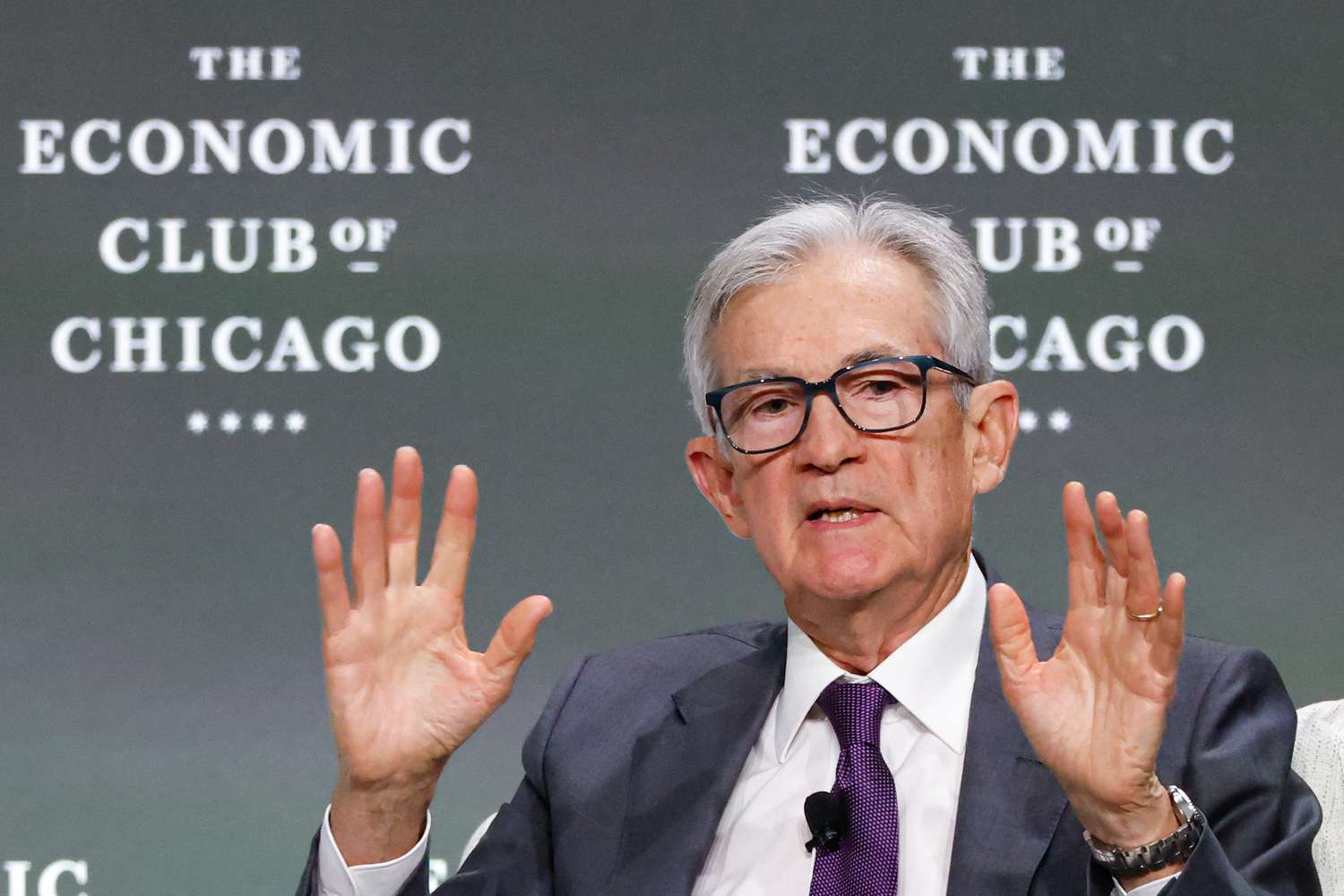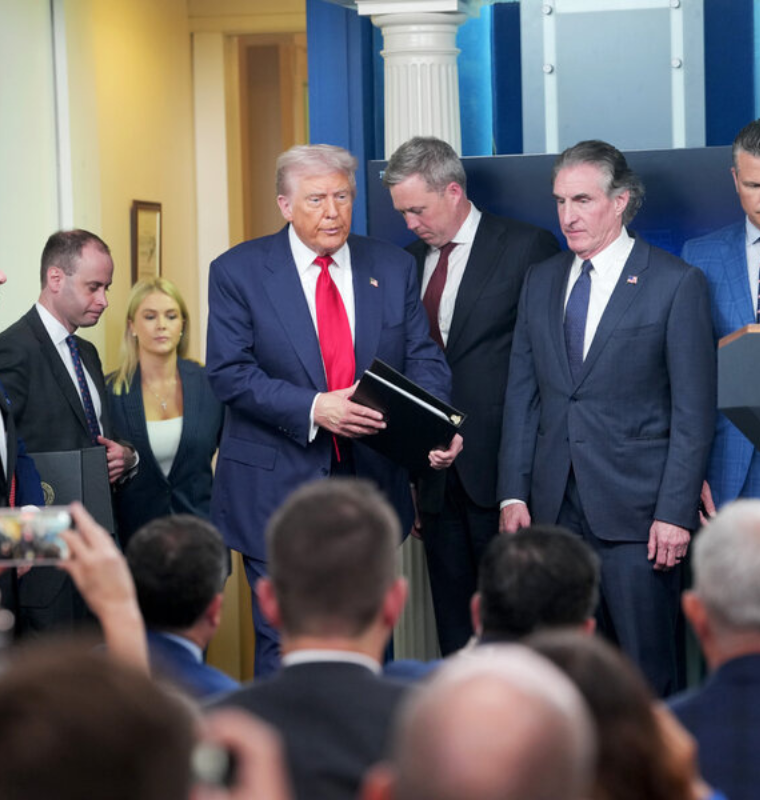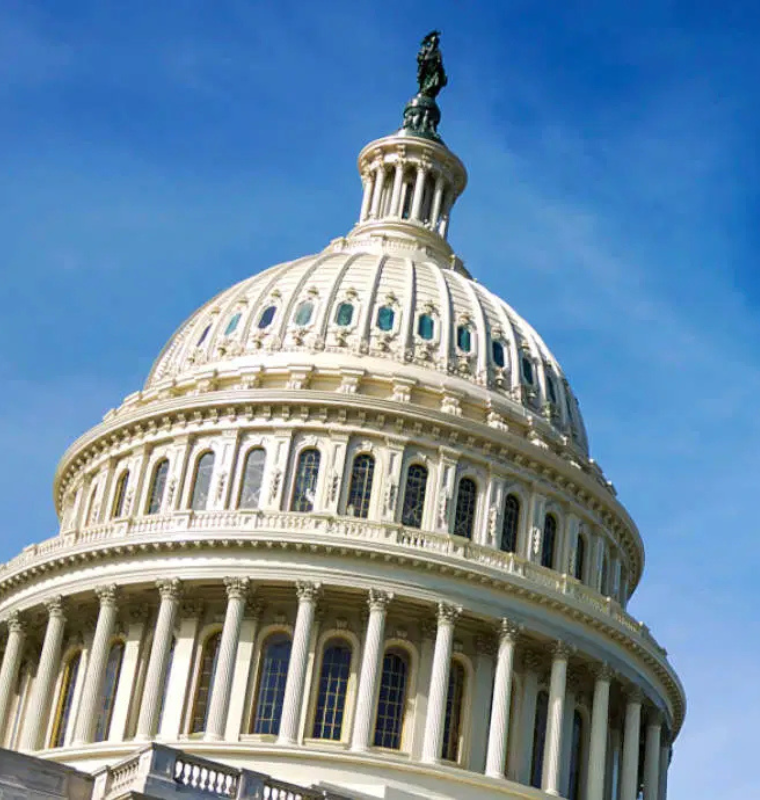Powell Defends Fed's Stance on Inflation as Trump Escalates Criticism Amid Tariff Uncertainty
Powell Defends Fed's Stance on Inflation as Trump Escalates Criticism Amid Tariff Uncertainty
By
Junia Wells
Last updated:
June 24, 2025
First Published:
August 6, 2025

Getty Images
Fed Chair Powell Reaffirms Cautious Approach on Inflation
Federal Reserve Chairman Jerome Powell made it clear this week that the central bank is in no rush to adjust interest rates as it continues to closely monitor the evolving impact of tariffs on U.S. inflation. Speaking before Congress, Powell reiterated that while economic growth remains robust and the labor market strong, inflationary pressures are still lingering above the Fed’s 2% target, warranting a wait-and-see approach to future policy moves.
“We are well-positioned to observe additional data before making any policy adjustments,” Powell said during his prepared remarks to the House Financial Services Committee on Tuesday, which he will repeat before the Senate Banking Committee on Wednesday.
Inflation Edges Up, Fed Eyes Tariff Impact
Powell highlighted recent inflation data, noting that the Fed’s preferred measure — the Personal Consumption Expenditures (PCE) index — is projected to rise to 2.3% in May, up from 2.1% in April. The core PCE, which excludes volatile food and energy prices, is expected to increase to 2.6%, up from 2.5% the previous month.
While these increases remain moderate, Powell emphasized that the full impact of President Donald Trump’s new round of tariffs remains uncertain. “Policy changes continue to evolve, and their effects on the economy remain unclear,” Powell stated. “Tariffs could result in one-time price adjustments or, if sustained, risk embedding higher inflation expectations.”
Historically, tariffs have led to short-term price spikes rather than prolonged inflation surges, but Powell stressed that the Fed’s responsibility is to prevent temporary price shocks from transforming into persistent inflationary cycles.
Trump Intensifies Attacks on Fed Leadership
Powell’s steady hand has drawn renewed criticism from former President Donald Trump, who has long argued that the Fed should be more aggressive in lowering rates to stimulate the economy. On his Truth Social platform, Trump called Powell a “dumb, hardheaded person” and urged Congress to pressure him.
This is not the first time Trump has publicly lashed out at Powell, but his rhetoric has escalated as the U.S. approaches the 2024 election season and trade tensions intensify. Powell, however, has repeatedly asserted the Fed’s independence from political interference.
“The FOMC’s obligation is to keep longer-term inflation expectations well anchored and to prevent a one-time increase in prices from becoming an ongoing inflation problem,” Powell said, emphasizing that price stability is essential for sustaining strong labor market conditions.
No Immediate Rate Cuts, but Diverging Views Within Fed
The Fed’s Federal Open Market Committee (FOMC) voted unanimously last week to keep interest rates steady. However, the latest update to the FOMC’s “dot plot” — which maps out individual policymakers’ future rate expectations — shows growing divisions:
- 9 out of 19 members favor keeping rates unchanged or cutting once in 2024.
- 8 members foresee two cuts.
- 2 members anticipate as many as three cuts before year’s end.
While the dot plot is anonymous, recent public comments from Fed Governors Michelle Bowman and Christopher Waller indicate they may support a rate reduction as early as July, provided inflation continues to cool. The most recent Consumer Price Index (CPI) report showed just a 0.1% increase for May, signaling limited immediate inflationary impact from tariffs so far.
Markets Signal September Cut More Likely
Despite growing debate within the Fed, markets remain skeptical of any near-term policy shifts. According to the CME Group’s FedWatch Tool, futures markets currently assign only a 23% chance of a rate cut at the upcoming July 29-30 FOMC meeting, but see much higher odds of a reduction at the September meeting if inflation shows continued signs of easing.
Analysts at Goldman Sachs estimate that sustained tariff escalations could shave up to 0.3 percentage points off U.S. GDP growth in the second half of 2024 if fully implemented, potentially adding fuel to both inflation concerns and recession risks.
The Balancing Act Ahead
Powell emphasized that the Fed remains committed to balancing its dual mandate of price stability and maximum employment, stressing that prematurely adjusting rates could either fuel inflation or slow growth unnecessarily.
“In the absence of price stability, we cannot sustain long periods of strong labor market conditions that benefit all Americans,” Powell concluded.
Popular articles
Subscribe to unlock premium content
Disney’s Timeless Magic and How the Entertainment Giant Continues to Shape Culture and Innovation

Imran Khan’s Economic Missteps Amid Political Chaos in Pakistan

The Philippines’ Digital Shift How Remittances and BPO Are Fueling Growth

Disney’s Timeless Magic and How the Entertainment Giant Continues to Shape Culture and Innovation

Imran Khan’s Economic Missteps Amid Political Chaos in Pakistan

Disney’s Timeless Magic and How the Entertainment Giant Continues to Shape Culture and Innovation









